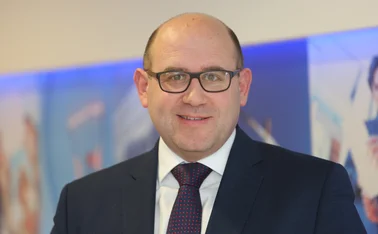
Claims - Private equity backing: Unlocking private equity

Private equity is not just the preserve of the insurer and broking sectors. Daniel Dunkley looks at how the claims sector has seen a fair share of PE investment, asks why this is the case and what it means for the firms involved.
In recent years, claims companies have become a key focus for private equity firms. As investment houses turn their gaze from more 'traditional' parts of the insurance industry, this sector, it seems, is an ever-enticing prospect. From Evander to Davies, Garwyn to LAS, private equity firms have backed management buy outs throughout the claims community, and the trend shows no sign of abating.
In 2010 alone, UK Drainage Network, a company specialising in remediation, validation, investigation and repair services, received a capital injection from Lyceum Capital. While mid-market equity specialist Gresham completed an investment of £12.3m in outsourcing firm Lanes Assistance Services in April.
Other deals have seen the transfer of Chem Dry to Ansa/Independent Inspections in August; and Evander Validation Services to Direct Group in May, both backed by Lloyds Development Capital.
For firms with the money, and management with ambition, recent deals appear to have been matches made in heaven — in most cases. But why is the match made in the first place, and what do private equity firms find so attractive about the claims space?
LAS, which operates in building repairs and drainage, has formed a partnership with former Giles investor Gresham, which was signed on 31 March. The investment bought out previous shareholder Lanes Group, as it sought to develop the firm's infrastructure and personnel. Gresham provided 100% of the £12.3m. Private equity houses Lyceum, Sovereign and LDC were also interested in investing in LAS, Post understands.
Seeking out a partner
Darren Cooper, managing director at LAS, says the "leap of faith" to court private equity money was made due to the fact it was not a priority for its previous owners: "We set up the business with a company called Lanes for Drains and we had grown LAS to a point where it was a decent size, but it sat outside the core business of our major shareholder. Any investment that was required by the core business came first. So, in order to maintain our innovation and deliver our service, we had to continue to invest. We needed a partner that would allow us to do that."
Mr Cooper admits that more than "a dozen" investors expressed interest in the group, with six going as far as making formal offers: "We looked around the private equity houses, and were keen on being able to control the business. We didn't want trade buyers, as we felt one would have swallowed us up. We didn't want to lose our identity."
The issue of control is one aspect LAS did not take lightly during discussions. Mr Cooper insists that relinquishing control to his investors was never on the cards: "They were very open with us from the start on the sort of equity the management needed. Some private equity firms only allow a very small percentage. But Gresham identified that we would be disillusioned if we had no control; 30% is enough to provide incentives to everyone."
Gresham's background in the insurance market, including a much publicised spell with consolidator Giles, was enough to eventually sway LAS into sealing the deal: "They used to invest in Giles Insurance Brokers, and knew the insurance market. Right from the first meeting we felt they understood our objectives. I believe they also felt we were a good fit, as they were looking for something different.
"There was a price they felt the business was worth, and we thought was fair. They never once moved to reduce or change the offer."
Mr Cooper says the Manchester and Birmingham-based firm had no trouble in attracting substantial investment despite being outside the capital. Becoming associated with private equity is not limited to London businesses, he contests: "We dealt with Gresham's Manchester operation, but in fact had a number of London-based firms talking to us."
He believes the claims sector is attractive due to the constant presence of accidents, repairs and mishaps. The economic downturn and insurance cycle have had little effect on property damage, he says: "To be honest, there has been a lot of interest in this sector recently. LDC, for example, has invested heavily. It is a sector that is pretty much recession proof — claims happen all the time."
From Gresham's perspective, the deal was a "huge opportunity", according to Simon Hemley, a partner in the firm's investment team. He certainly agrees with Mr Cooper on one issue — that the claims sector is consistent: "There is a very reliable level of claims year in and year out. There has also been a trend towards outsourcing and, in my view, that trend will continue. What makes them an attractive prospect is the very clear cost and time savings that claims management offers to customers."
Mr Hemley insists the private equity sector remains committed to investing in a wide range of financial services firms - and would consider moving back into the broker market: "From our point of view, claims companies are not necessarily a better investment than other insurance-related companies. We have invested in the past in the broking market and it has been fantastic — we would look at that space again.
"In our view, no one has got it right in the claims sector, and the main players have grown quickly, as service levels falter. We have the opportunity to launch a 'best in class' service — the opportunity is huge." Gresham has confirmed it will push for huge growth at LAS — for which it has set a three-to-five year timescale: "In terms of turnover and profit, we want to grow a business that is five times the size it is today. Critically, we have to ensure service levels are maintained."
He believes his firm — and other equity houses — will retain a healthy interest in claims: "The claims sector will remain an attractive space to private equity investors due to the macro-market drivers."
Charles Crawford, chief executive at loss adjusting and claims group Davies, is also supportive of private equity. Davies received investment in February 2008, securing a £27m management buy out, prior to his joining the business in April 2009. Under the deal, LDC owns more than 50% of the Davies business.
Mr Crawford speaks glowingly of the support LDC has given the business: "It has brought a real dynamism, vigour and focus." He insists that the business has been able to push itself to a heightened level of professionalism with this backing — and believes private equity firms consider the quality of management a key factor in making an investment, rather than the size or stature of a business: "What a private equity firm is looking for is a good management team, growth and what sets the business apart from its peers; claims meets that criteria. We had a strong relationship with the partners at LDC, who thought it would be a good fit."
LDC seems enamoured by the claims sector too. Yann Souillard, a director at the firm, says it represents a strong investment: "The overall insurance outsourcing market is attractive; we have been close to it for a number of years now. A range of dynamics make it a suitable area for private equity investment. For example, insurers are facing a lot of competition and regulatory pressure. Insurers looking to cut costs will look to outsource and this creates opportunities.
"Besides growth, we see the potential for consolidation in the market. These businesses are cash generative, and have positive characteristics," he adds.
Richard Webster, chief executive of Merlin Professional Claims Services, aligns his views with Mr Cooper and Mr Hemley — that claims services are always in demand: "It stands to reason that any investor, including private equity firms, will look to back vehicles that can return quality, sustainable earnings."
Merlin was sold to Hermes as part of a management buyout in September 2005 for £62m. "Historically, claims companies with robust and efficient business infrastructure and processes have been attractive to private equity firms because of the security of their business relationships and demand predictability," adds Mr Webster.
Mark Smith is chairman of Avertis Risk Solutions, a fraud investigation firm, but he previously worked for WNS Assistance, a firm that itself once received private equity backing.
Based on current trends, Mr Smith comments: "The attraction of claims management firms is their customer lists. With a blue chip client base, there is predictability of future earnings — and this is something private equity firms are always interested in.
"There has always been an acceptance that room exists for consolidation in claims management, with a lot of small firms around. Ultimately, private equity will look for firms that can consolidate."
Loss adjuster Garwyn is 60% owned by private equity firm Barclays Ventures, and 40% owned by management. Having only joined the firm in June, chief executive Stewart McCulloch has been impressed by its private equity backers: "Barclays has really helped us make the shift to become a larger business; it has been responsible for a cultural shift."
Mr McCulloch agrees with Mr Crawford — that the claims sector has benefited from the professionalism private equity firms can offer: "I would say these firms look at sectors where the players aren't as well managed as they should be. One positive element of private equity investment is it tends to bring more professionalism — as it has in other sectors of the insurance market."
He refutes the suggestion that the 'buy to sell' technique of private equity reflects a conflict of interest with management: "I have worked with three or four different private equity firms during my time in the insurance market. They all work hard to align their interests with the companies they invest in."
Process over people
Olly Laughton-Scott, managing partner at Imas Corporate Advisors, regularly engages with private equity houses looking to invest in the insurance market. He believes claims companies are seen as a solid investment, with 'process-driven' businesses more attractive than 'people-driven' broker firms: "Private equity finds it difficult to assess and handle people-based businesses. The entry is fine, but the exit is problematic. They would always prefer process over people."
However, he believes that the relationship between the two sectors is not always successful: "Some firms misunderstand the relationship between the service providers and the corporates. Within loss adjusting, a few have come unstuck because they didn't realise that the opportunities are far less certain, and didn't realise insurers would sometimes use loss adjusters only as an overflow, taking services back in-house."
Despite all of the potential benefits of private equity, Mr Laughton-Scott insists external investment is not without its risks. The claims sector and private equity firms must ensure they are both aligned on investment goals and timeframes to ensure success, he warns: "One of the risks of private equity is that it will often cut back on long-term investment. That can create strains. In industries that require long-term investment, private equity's three-to-five year time view may not support this."
Nevertheless, he predicts such firms will remain interested in the claims space: "We would expect private equity to play a bigger role in the future. Although these firms have had a difficult time, they are cash rich. We are seeing a lot of enquiries at the moment."
This is a view echoed by Mr Souillard. With the sheer number of ambitious management teams, it would be foolish to write off activity in this sector, he says: "I do think there is a likelihood of more investment. Driven by competition, firms will look to outsource more, and there will management teams seeking buyers. It makes sense."
Only users who have a paid subscription or are part of a corporate subscription are able to print or copy content.
To access these options, along with all other subscription benefits, please contact info@postonline.co.uk or view our subscription options here: http://subscriptions.postonline.co.uk/subscribe
You are currently unable to print this content. Please contact info@postonline.co.uk to find out more.
You are currently unable to copy this content. Please contact info@postonline.co.uk to find out more.
Copyright Infopro Digital Limited. All rights reserved.
As outlined in our terms and conditions, https://www.infopro-digital.com/terms-and-conditions/subscriptions/ (point 2.4), printing is limited to a single copy.
If you would like to purchase additional rights please email info@postonline.co.uk
Copyright Infopro Digital Limited. All rights reserved.
You may share this content using our article tools. As outlined in our terms and conditions, https://www.infopro-digital.com/terms-and-conditions/subscriptions/ (clause 2.4), an Authorised User may only make one copy of the materials for their own personal use. You must also comply with the restrictions in clause 2.5.
If you would like to purchase additional rights please email info@postonline.co.uk







